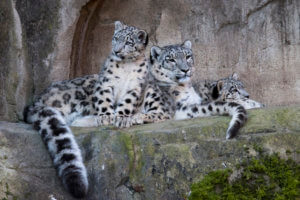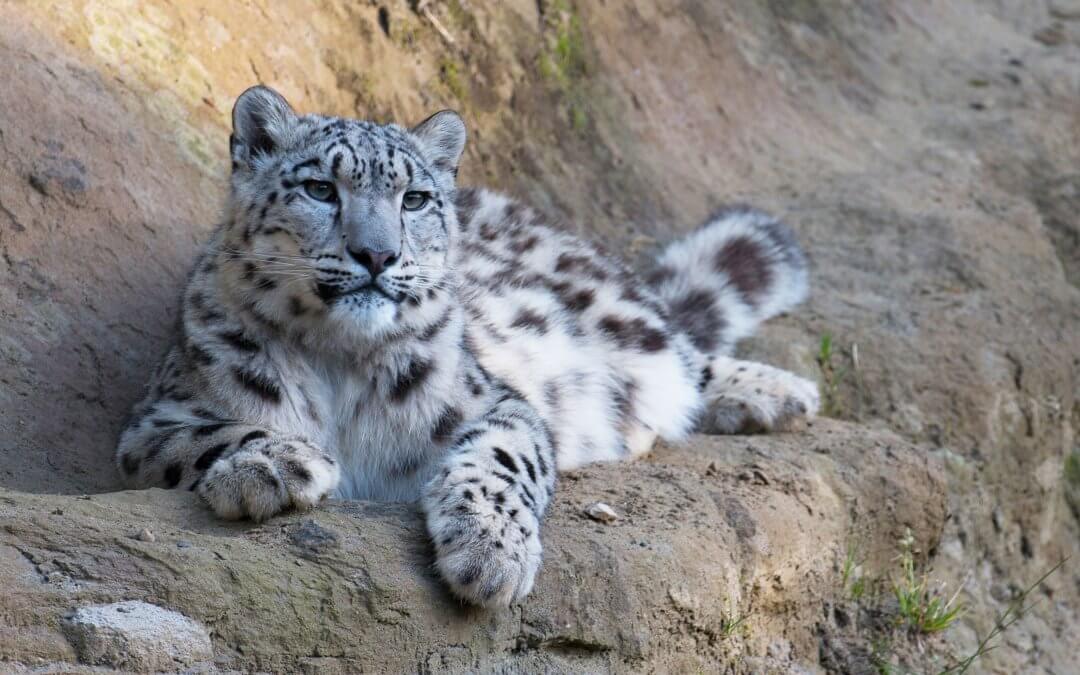Transboundary cooperation for the snow leopard and its ecosystems conservation in Central Asia
On May 31, 2022, the Global Snow Leopard and its Ecosystem Protection Program (GSLEP) Secretariat hosted a meeting of representatives of environmental agencies of the Central Asian countries within snow leopard range. The meeting was organized following the International Biodiversity Day.
At the meeting, the delegates discussed the Memorandum of Understanding for the conservation of snow leopard, its prey and habitat in the West Tien-Shan and Pamir Alai between the environmental authorities of the Republic of Kazakhstan, the Kyrgyz Republic, the Republic of Tajikistan and the Republic of Uzbekistan. The MoU was signed by the Environment Ministries’ representatives during the 26th UNFCCC CoP in Glasgow, UK (November 2021). It is noteworthy that the Memorandum aligns closely with the UN Resolution “Nature knows no boundaries: Transboundary cooperation is a key element in the conservation and sustainable use of biodiversity”, endorsed during the 75th session of the General assembly. The Resolution provides for the adoption of urgent, joint steps to protect the environment with a focus on transboundary cooperation and interaction in the field of conservation of biodiversity in high-altitude ecosystems.
At the meeting, the delegates shared updates about on-going projects and plans that correspond to the goals of the MoU. The delegates agreed to increase cooperation on issues pertaining to biodiversity assessment; combating poaching and illegal wildlife trade through capacity-building and information exchange; planning and implementation of climate-resistant, biodiversity-friendly economic development; and monitoring of the emerging infectious diseases.

The snow leopard is an irreplaceable symbol of the natural and cultural heritage of the Central Asian countries, an indicator of the health and sustainable development of mountain ecosystems. The importance of strengthening transboundary cooperation for the snow leopard and its ecosystem conservation is an integral step in providing for the future generations a clean, safe and sustainable environment.
Specifically,Kazakhstan: Delegates from Kazakhstan expressed being fully on-board with the need for transboundary cooperation, and assured of taking the needful actions to review and join this collaborative effort.
Kyrgyzstan: Delegates from Kyrgyzstan informed about developing a draft Action Plan for the implementation of the memorandum and expressed its full readiness for joint cooperation and experience exchange with the parties to the memorandum. The action plan, focuses on training border and customs officers, identifying species prohibited for import, organizing public patrols to counter illegal hunting and trafficking in derivatives, and creating an incentive system for rangers to increase efficiency in the fight against poaching.
Tajikistan: Experts from Tajikistan noted that much of the snow leopard habitats are transboundary in nature. They also expressed the need for joint monitoring programs in transboundary areas to conserve snow leopards. The experts provided information on the effective work of the SMART monitoring system, which had been specially prepared and programmed for Tajikistan by NEXT GIS Russia. After completion of the project, Tajikistan anticipates wide use of the toolkit for scientists and inspectors and even in the Public Tracker Monitoring System. The experts stated their readiness to contribute to the formation of global principles of a common action plan, in fulfillment of the agreement of the Central Asian countries. Delegates expressed the need for practical exchange visits for experts and specialists to move from data sharing to practical participation in missions.
Uzbekistan: The delegation from Uzbekistan informed about the country’s endorsement of a 10 year action plan to conserve snow leopards between 2021 and 2030, which closely aligns to the goals of this MoU. The country looks forward to coordinating our conservation actions with those of our neighbouring countries. The Plan covers all thematic areas including resource management and monitoring, conservation of protected areas and biodiversity in mountain ecosystems, especially national resources such as pastures and forests. The plan recognizes the value of working with communities, NGOs, with local communities, and other global and national partners. It was also noted that the Plan addresses the issues of illegal trade in wildlife, thus covering several specific sections on integrated wildlife conservation in Uzbekistan. It was also noted that the Government of Uzbekistan has approved the creation of a nature park near the Tupalang River, which borders with Tajikistan, and this can also be a contribution to the creation of transboundary protected areas. This is an important step in the implementation of the Memorandum of Understanding on transboundary cooperation for Central Asian countries.
Following the meeting, the GSLEP Secretariat proposed to develop an exclusive regional program to support the implementation of the MoU in Central Asia. It is hoped that follow up action and appropriate fundraising will help unite the efforts of the snow leopard range countries, with an emphasis on preserving biodiversity, improving environmental legislation, building capacity, and ultimately improving the lives of the human populations living in mountainous areas.



